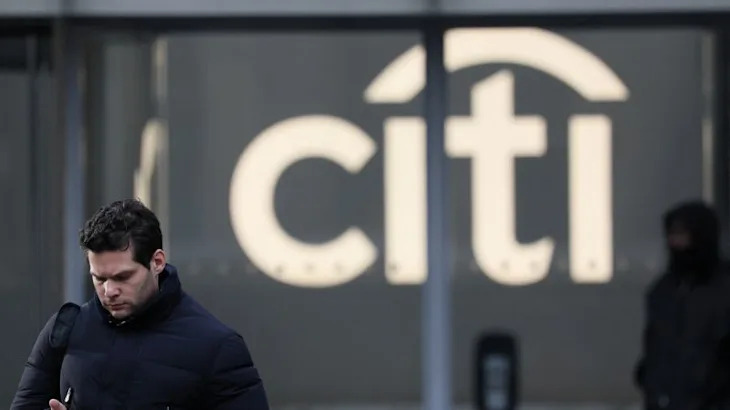
Citigroup profit beats estimates as stock trading jumps 23%
By Tatiana Bautzer and Arasu Kannagi Basil
NEW YORK (Reuters) - Citigroup beat Wall Street estimates for first-quarter profit on Tuesday as its traders reaped a windfall from volatile markets that fueled client activity.
The third-largest U.S. lender's earnings echoed those of Wall Street rivals, including JPMorgan Chase, Bank of America, and Morgan Stanley, whose results were also lifted by stronger equities trading. While industry profits rose, executives warned that U.S. tariff policies cast a shadow over the economic outlook.
"We continue to help our clients navigate an uncertain environment," CEO Jane Fraser said in a statement. "When all is said and done, and long-standing trade imbalances and other structural shifts are behind us, the U.S. will still be the world's leading economy, and the dollar will remain the reserve currency."
Stock trading jumped in the first three months of the year, with 23% higher revenue, as investors rejigged their portfolios during a period of heightened uncertainty over President Donald Trump's tariffs and the emergence of Chinese startup DeepSeek's low-cost AI model.
Investment banking revenue increased 12%, mainly from advising on mergers and acquisitions.
"There's obviously a great deal of uncertainty around tariffs and trade policy and how that will evolve, but also uncertainty around the broader agenda, deregulation, tax policy, etc. - that is putting kind of downward pressure on the outlook for growth," Chief Financial Officer Mark Mason told reporters. "We hope the 90-day pause will allow some breathing room," he said, referring to the Trump administration's hold on tariffs against many trading partners.
Citi's net income jumped 21% to $4.1 billion, or $1.96 per share, in the three months ended March 31. Wall Street had expected the bank to earn $1.85, according to estimates compiled by LSEG.
Shares of the New York-based bank rose 1.6%. They have declined 10.2% this year as of Monday's close.
CEOs across Wall Street have warned about the potential fallout of the U.S. tariffs, which have clouded the economic outlook and prompted recession fears. Bank stocks were pummeled when sweeping U.S. tariffs were announced this month, a stark turnaround from the optimism at the start of the year for Trump's pro-business agenda.
Tariffs could reignite inflation and constrain economic growth, curbing companies' appetites for dealmaking and borrowing. Weakening consumer sentiment could also weigh on spending and loan demand.